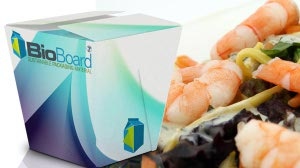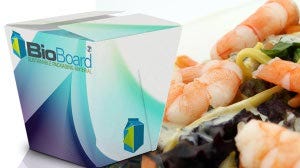Bio-Board project promotes packaging recyclability
January 30, 2014

A Euro
A - Bio-Board - rrr.jpg
pean project called the Bio-Board project has beeninstituted to develop sustainable protein-based paper and paperboard coating systems to increase the recyclability of food and beverage packaging materials. The BIO-BOARD project will build on past research that has revealed that whey protein coating can provide bio-degradable plastic layers that can replace existing plastic coatings in multilayer packaging and enhance their recyclability by separating the individual fractions of the multilayer packaging.
To this end, a tailored coating system based on the renewable raw material derived from agro waste and its technological application will be developed for extrusion coating paper, paperboard and cardboard to produce packaging materials. The base material for the coating will be innovative formulations based on proteins such as whey and residues from potato. Currently, half of the 50 million tons of whey produced annually in Europe from cheese production is discarded, while about 65,000 tons of dried fruit juice protein and 140,000 tons of dried potato pulp are produced during starch production annually within the EU that could be available for utilization.
The Bio-Board project coordinator Dr. Elodie Bugnicourt, from Barcelona-based IRIS (http://www.iris.cat), highlights that, "Bio-Board stands in response to the current demand from producers of coated paper, paperboard and cardboard manufacturers for a bioplastic that will enable them to substitute much of the currently used synthetic coating without compromising the barrier properties of the resulting packaging laminates and overcoming the current challenge to the recycling of such packaging. Bio-Board is based a holistic integrated environmental approach to increase the sustainability of materials and processes throughout their life cycle".
The three-year project, which is composed by 14 partners from 10 European countries, has received funding from the European Community's Seventh Framework Programme (FP7/2007-2013) managed by REA Research Executive Agency under grant agreement n°315313.
About the Author(s)
You May Also Like


